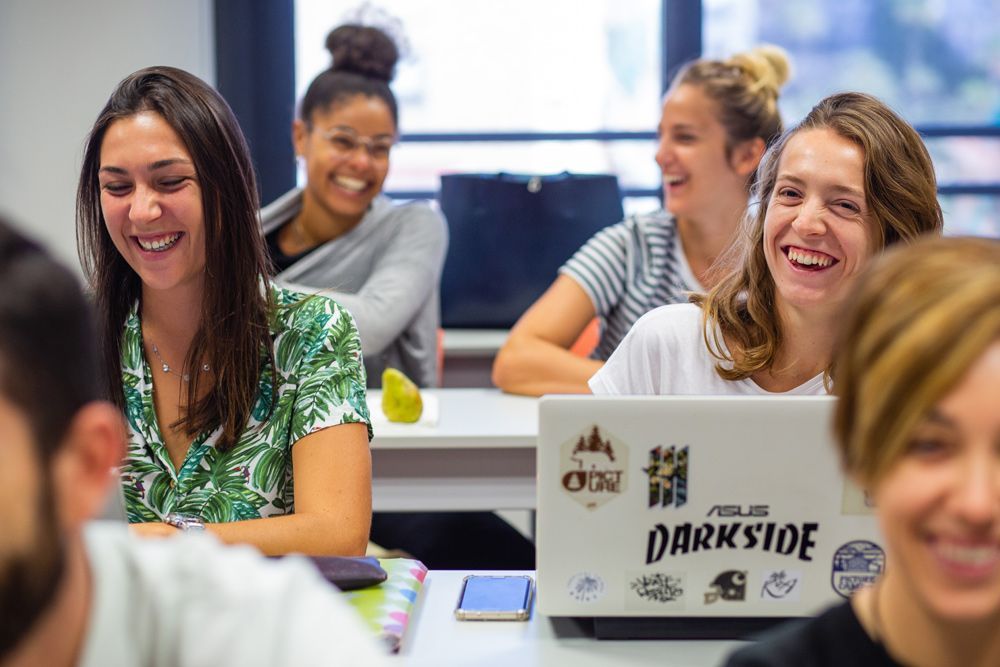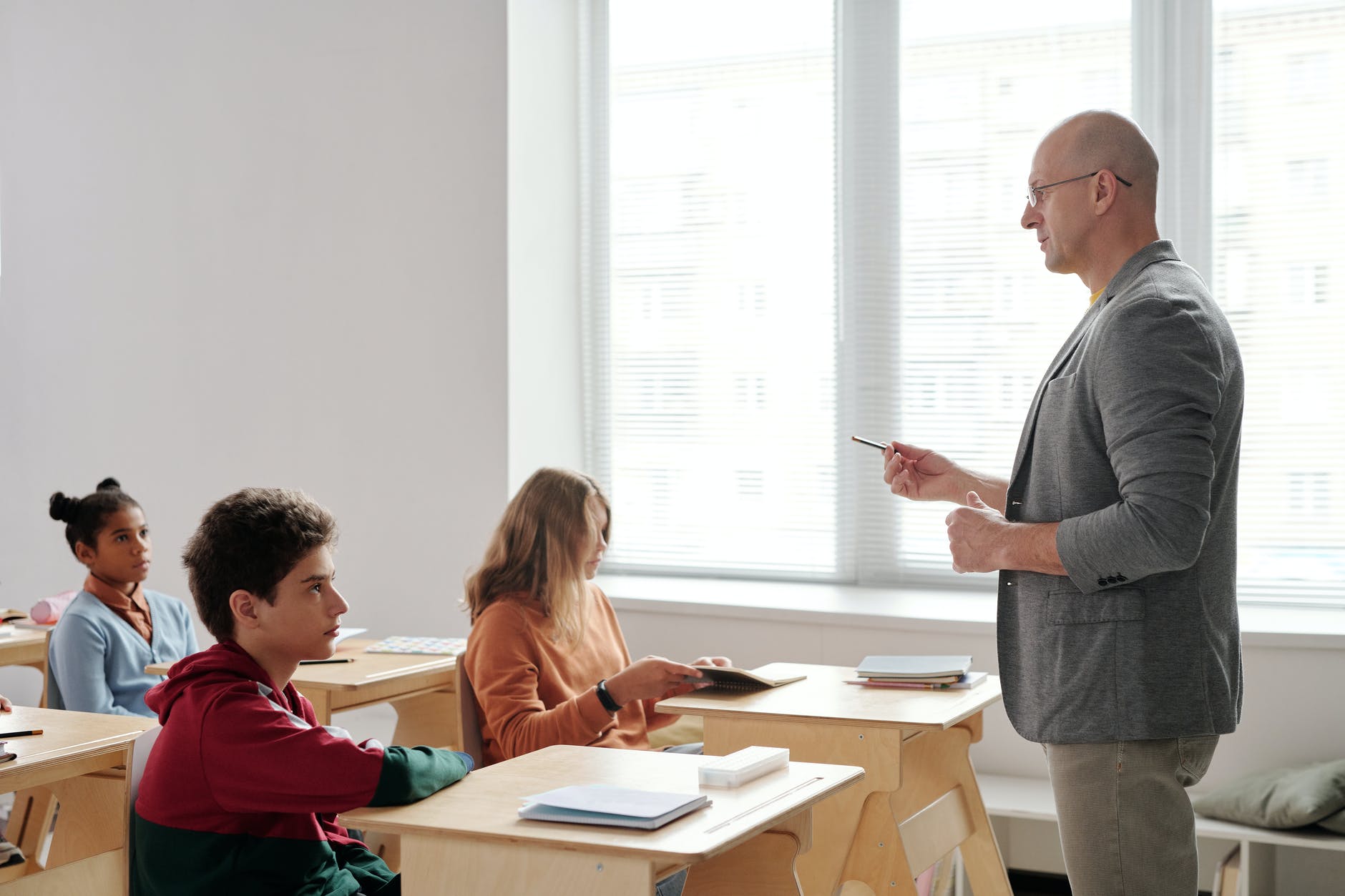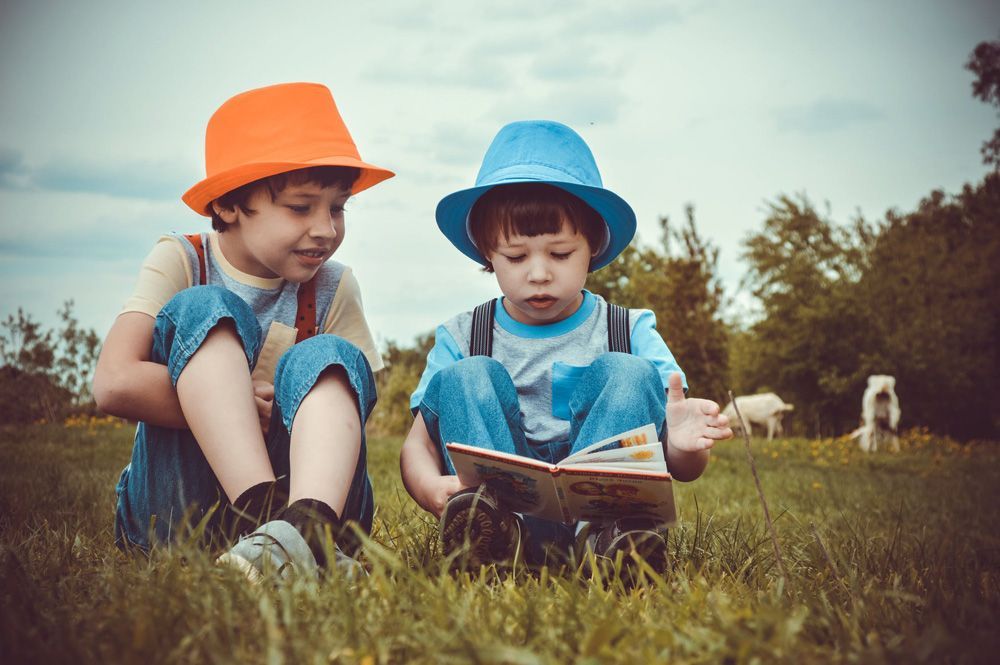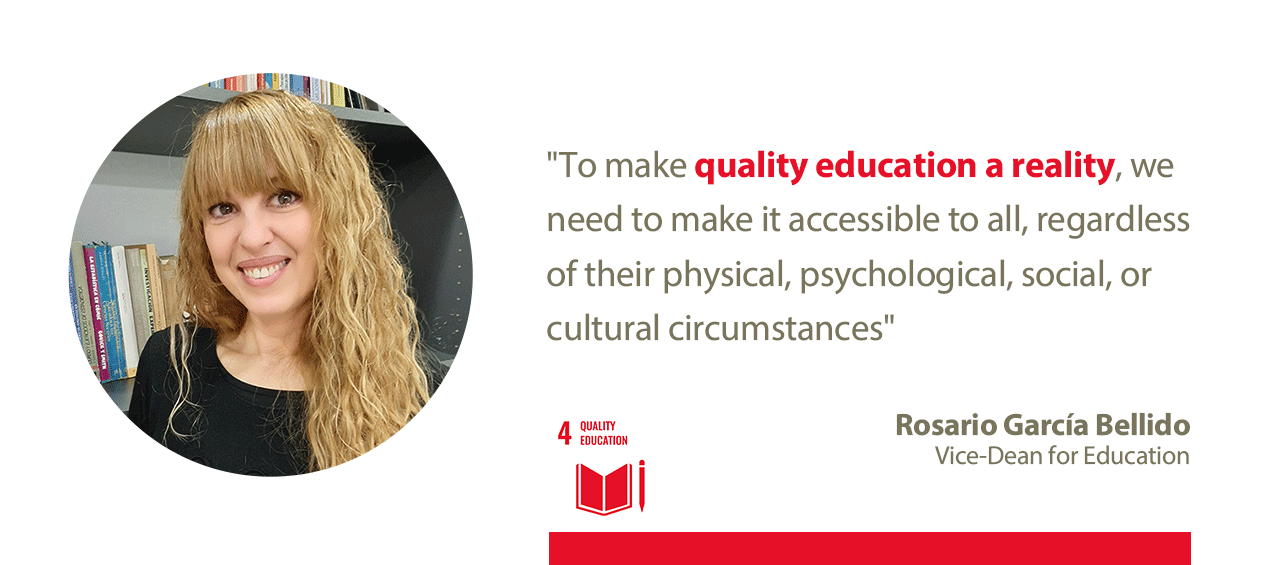“One child, one teacher, one book and one pen can change the world.” These were the words spoken by a 17-year-old Pakistani woman, Malala Yousafzai, as she accepted the Nobel Peace Prize. Ensuring children’s right to an education is one of the most important building blocks for the creation of fair and peaceable societies. Indeed, the UN’s fourth Sustainable Development Goal is quality education. We spoke to the CEU UCH’s Vice-Dean for Education, Rosa García, to discuss the importance of education and the educational challenges we must face to fulfil Ms Yousafzai’s desire to change the world.
What does “quality education” mean?
Quality education is a multi-faceted concept. It’s about things that happen inside and outside of the classroom.
To make quality education a reality, we need to make it accessible to all, regardless of their physical, psychological, social, or cultural circumstances and it must enable each schoolchild’s full and comprehensive development so that they can be ready to play their part in today’s world. This means developing their ability to think critically, to show social commitment, and to respect and acknowledge human rights, and indeed to exercise them. It must provide opportunities to take part in society, prosper in it and contribute to improving the environment.
If children can access education of this type, this will facilitate equality of opportunity. That’s why education and our focus during this process must be tailored to the needs and context of each person.
Quality education also means that all those involved in the educational process (family, school and wider context) must play a full part in it and fulfil their responsibilities. And, of course, the teachers will need the right resources in order to be able to provide a comprehensive education. That doesn’t just mean infrastructure, but also training, which must address real needs rather than the interests of one particular group or intermediary.
What role can teachers play to achieve “quality education”?
Teachers must play an active role and they must be capable of transforming teaching and suiting it to the particular circumstances they are faced with. So, what we need is motivation, enthusiasm, creativity, innovation, research, training and commitment. It will be the teachers who ultimately implement the actions needed to make quality education a reality. That’s no small thing – real commitment to the cause will be needed to make it happen.
Right from their first day of training, teachers must be given the tools and resources, on the one hand, to able to adapt effectively to diverse settings, and, on the other, to able to recognize their own training needs and act accordingly.
 Our University is committed to training teachers in skills which will enable them to understand, analyse and adapt to a range of educational situations, using critical thinking and a holistic approach. These skills will enable students and future teachers to:
Our University is committed to training teachers in skills which will enable them to understand, analyse and adapt to a range of educational situations, using critical thinking and a holistic approach. These skills will enable students and future teachers to:
– Know how to use active and innovative approaches
– Employ creativity to tailor teaching methods to the needs of each class flexibly and effectively
– Pay attention to diversity via inclusion methods and teamwork, both inside and outside the classroom, and nationally and internationally
– Receive training in values, enabling them to become better professionals and better people
– Develop the skill of “learning to learn”, which is the key to professional development.
What are the challenges teachers face in the implementation of quality education in their day-to-day work?
Teachers have to be aware that circumstances can change quickly. So, they need to reflect on them and update their knowledge and skills in order to be able to take decisions which can benefit their students. Perhaps not all teachers are willing to make the effort to do that, and so I think that’s the biggest challenge. Having a can-do, positive attitude is a big part of the vocation, motivation and enthusiasm for teaching.
However, if we look at the situation teachers are in, it’s often difficult to generate the motivation that we need, especially when society and families don’t place a high value on the work teachers do. That has a big impact on educational quality and that’s a challenge that teachers must face up to. They must address those situations and keep on chipping away in order to achieve their objectives. And again, it’s important to highlight the need to feel a vocation, because teachers who aren’t committed to the profession are more likely to become demotivated.
 Technology has a big influence too and teachers cannot lose sight of this, so they need to engage in lifelong learning, research and innovation in order to develop and adapt to new contexts.
Technology has a big influence too and teachers cannot lose sight of this, so they need to engage in lifelong learning, research and innovation in order to develop and adapt to new contexts.
Another challenge that many teachers face is a lack of resources and that too has an impact on educational quality. So, resources are required, but you also need to know how to use them, and that means training is also needed.
Why is it important to make education more inclusive?
Mainly because if we don’t make education more inclusive, quality education will remain out of reach. We won’t be providing equality of opportunity to all people to develop and play a full role in society. Imagine if I were to split pupils up in the classroom according to specific educational needs, nationality, ideology, social status, etc. I would be creating incredible inequality: firstly, because the pupils would see that they were split into different groups and that, therefore, they were not equal. These divided classes would lead to a divided society. Outside school, they would take these differences for granted.
On the other hand, if don’t give everyone equality of opportunities and I don’t address each person’s needs, then I’m putting those people at risk of social exclusion.
“Quality education is a multi-faceted concept. It’s about things that happen inside and outside of the classroom”
An inclusive education means that teachers must work with the whole group rather than with individual pupils on their own. I address the different needs as they come up, the pupils feel they are being treated equally, and so they take diversity to be the norm. They help each other more by working as a team, they support each other’s development and, outside school, they all feel part of the same society and are committed to it as one.
 And we mustn’t forget an important factor in making inclusive education a reality: family involvement. Without support for diversity from their families, pupils will be confused by the difference between what they see at school and what they see at home.
And we mustn’t forget an important factor in making inclusive education a reality: family involvement. Without support for diversity from their families, pupils will be confused by the difference between what they see at school and what they see at home.
Can diversity teach us something?
Of course. We can all learn something: teachers, pupils, families and society. From the teacher’s perspective, we can say this learning is rewarding. You learn to get to know the pupils better, to use new methods and more interactive learning approaches, to make your planning more flexible, to use different kinds of assessment and to change your objectives. In short, it shows us new ways of educating and of understanding education.
For schoolchildren, it gives them an opportunity to learn about life, to learn how to live in a diverse society which enables everyone to participate. This will then have an effect on tomorrow’s society, which will see diversity as integral part of society itself, rather than something which is “other”. The children become enriched by this diverse environment. They learn from others, they learn about different kinds of circumstances, new cultures and ways of understanding life. It fosters the values needed for a cohesive community and for appropriate social development, such as solidarity, respect, tolerance, patience, understanding and friendship.
“Society is a reflection of our education”
How can we provide education for sustainable development?
Education for sustainable development is all about raising social awareness, but the work can begin in schools by making sustainability issues part of the curriculum: climate change, poverty, responsible consumption, recycling, biodiversity, etc.
I think that these issues should form part of children’s education from the very beginning, so that, as adults in the future, they will take good care of the planet. We want them to grow up being aware of the repercussions that their decisions and attitudes can have on the environment.
These issues are easily combined with other educational materials. They could be very interesting themes for school projects in which the pupils carry out their own research and can then reflect on and take on board that knowledge. Doing this will make them more likely to take action in support of sustainability. I think this is also this is an important part of providing a quality education. As I said, you have to take the context into account. Education must be holistic, as that’s how it can really be transformative.
Where do you think education is headed in the future?
I’d like to think that education is headed towards a future which is very different to what we see today. The pace of change in schools is still very slow compared to what we see in society as a whole. There’s still room for improvement and we have to act more quickly. If not, we will be overtaken by events.
It’s also true that technology will have a key role to play in the future. I think we have to try and get the most out of technology, but without losing sight of the human side of education. People are social creatures: we need to interact with others and establish personal relationships in order to develop empathy and understanding of other people. Technology can sometimes get in the way of that. We need teachers to encourage teamwork amongst their pupils and to instil values so that we don’t lose sight of the humanity we need to create a better world.
 But maybe the right answer to the question you’ve put to me is that education is heading in the direction we set for it. It’s up to us. And, in the main, that means it’s up to our leaders, the people who create educational legislation. This is something that everyone, every responsible citizen, must be aware of. And, of course, it also depends on the training our teachers have, on their attitudes, on whether they have that vocation, and on the work they do in their classrooms.
But maybe the right answer to the question you’ve put to me is that education is heading in the direction we set for it. It’s up to us. And, in the main, that means it’s up to our leaders, the people who create educational legislation. This is something that everyone, every responsible citizen, must be aware of. And, of course, it also depends on the training our teachers have, on their attitudes, on whether they have that vocation, and on the work they do in their classrooms.
If I could make a wish for the tomorrow’s education, it would be to ask politicians to come together, find a consensus, and put together a law on education which will be durable and stable. That would remove some of the systemic uncertainty from education. And I’d want this law to seek to create a fairer and more empathetic society, one which is committed to protecting the global environment, which looks to promote the development of people in every way without discriminating or differentiating, which aims to provide quality education and which is not beholden to particular interests.







